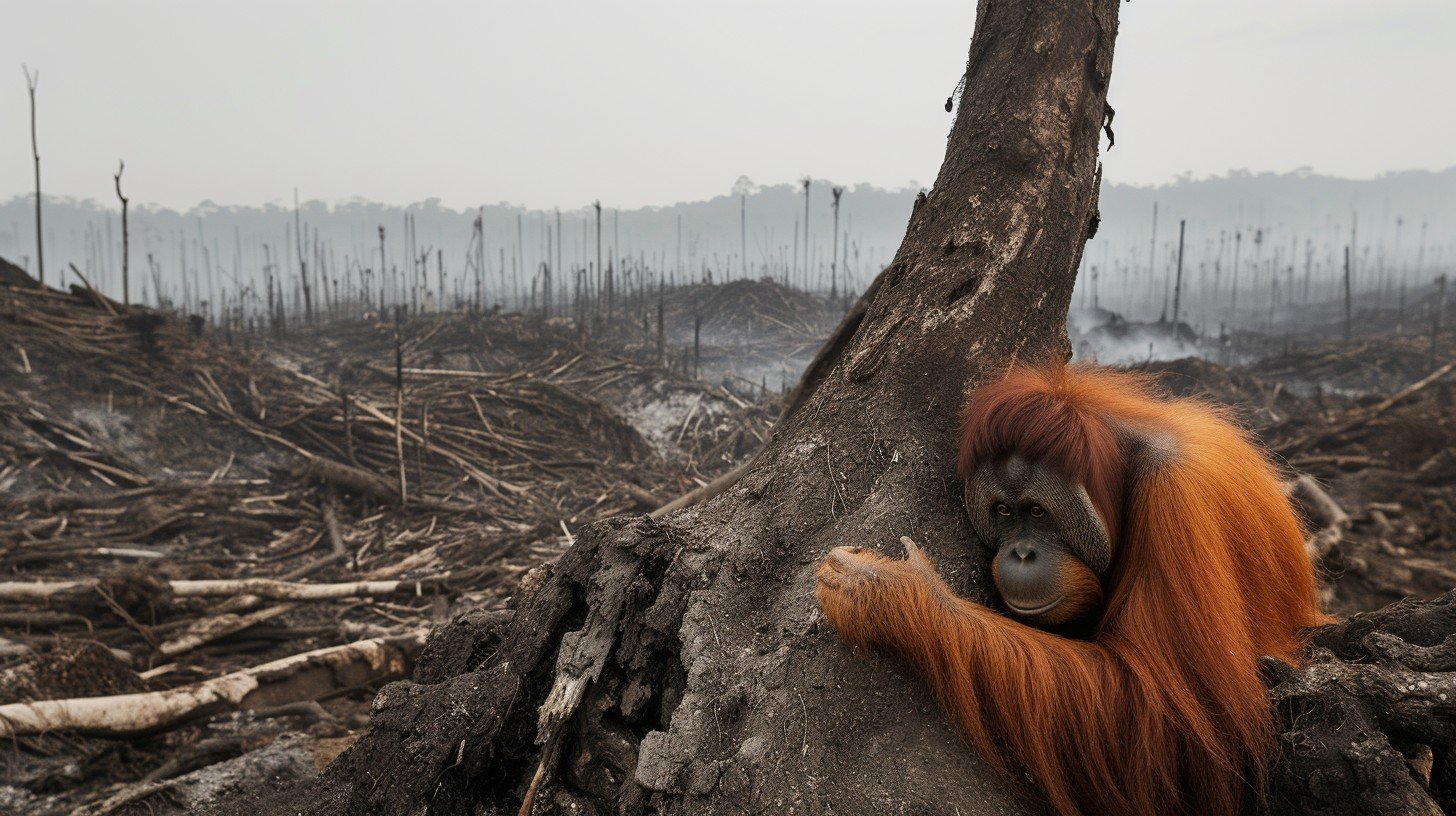Why elsewhere says no to palm oil
Why elsewhere says no to palm oil.
25/05/25
Palm oil is one of the most commonly used ingredients in the world. It’s found in thousands of products - from supermarket snacks to luxury cosmetics. Even in the so-called ‘green’ or organic space, it’s everywhere.
But ubiquity doesn’t equal sustainability. In fact, palm oil is one of the most environmentally and ethically fraught ingredients in modern manufacturing.
Back in 2015, I recall seeing the smouldering remains of a recently de-forested landscape on a video recorded by my friend, on her phone, whilst working out in Sabah, Malaysian Borneo. There was a violence in this landscape; like the aftermath of a war. Borneo is renowned for its vast and diverse jungles, but these precious ecosystems are being eradicated by large-scale palm oil plantations.
Slash and burn is an extremely destructive practice, and as land in this area is comprised largely of a highly flammable peat soil, these fires spread rapidly destroying everything in their path and are difficult to stop.
Why palm oil is so widespread: even in organic products
Palm oil is incredibly efficient. It yields more oil per acre than any other crop, making it cheap and appealing to manufacturers. It’s also functionally versatile: semi-solid at room temperature, stable, and neutral in scent and colour. For many brands - even organic ones - it becomes an easy default. It often sneaks into organic brands through the emulsifier they use. We use ‘emulsifier m’, which is intentionally palm oil free.
Choosing palm-oil-free skincare may seem like a small gesture, but it’s part of a broader movement toward conscious consumption. It signals to industries that we value transparency over convenience, ecosystems over efficiency, and long-term wellbeing over short-term gain. Palm oil production is dismantling entire ecosystems. Critical habitats for endangered species like orangutans, Sumatran rhinos, elephants, and tigers are being lost, often irreversibly.
The impact of palm-oil production reaches far beyond wildlife. Indigenous peoples and forest-dependent communities are being displaced as ancestral lands are cleared and converted into industrial plantations. In Indonesia, large-scale slash-and-burn clearing has triggered catastrophic fires, choking the air with smoke and destroying millions of hectares of carbon-rich peatland. In just two decades, the Bornean and Sumatran Orangutans have lost over half of their habitat and they are now teetering on the edge of extinction. These are real, irreversible losses that reflect the prioritisation of industrial efficiency over ecological integrity.
Since 1995, global palm oil production has soared - from 15 million to over 66 million tons by 2017. The market, valued at $67.3 billion in 2022, continues to grow rapidly, projected to expand by over 5% annually through 2030. The pressure to produce more, faster, and cheaper continues to drive deforestation and exploitation.
While the scale of the challenge is daunting, consumer choices do matter. Supporting products that are palm-oil-free - even ‘sustainable’ palm oil is contributing to the ecological horror - can send a clear signal: that business-as-usual is no longer acceptable.
Palm oil is sneaky
*I still spend a lot of time squinting at ingredients on products. But palm oil is sneaky. It goes by nearly 200 names.
Here are some of the most popular ones:
1. Elaeis guineensis
2. Etyl palmitate
3. Glyceryl
4. Hydrogenated palm glycerides
5. Octyl palmitate
6. Palm fruit oil
7. Palm kernel
8. Palm kernel oil
9. Palm stearine
10. Palmate
11. Palmitate
12. Palmitic acid
13. Palmitoyl oxostearamide
14. Palmitoyl tetrapeptide-3
15. Palmityl alcohol
16. Palmolein
17. Sodium kernelate
18. Sodium laureth sulfate
19. Sodium lauryl lactylate/sulphate
20. Sodium lauryl sulfate
21. Sodium palm kernelate
22. Stearate
23. Stearic acid
24. Vegetable fat
25. Vegetable oil
Palm oil free skincare. Always
At elsewhere, we believe that skincare should care for more than just skin.
By saying no to palm oil, we’re choosing a path of respect - for forests, for wildlife, for communities, and for the future we all share.
Each formula is a reflection of what we stand for: purity, purpose, and respect for the interconnectedness of self and nature.


